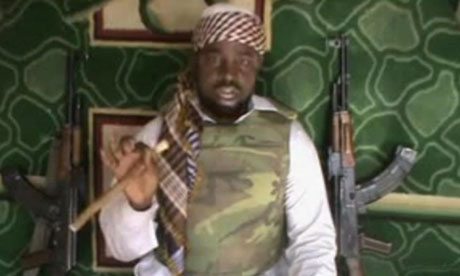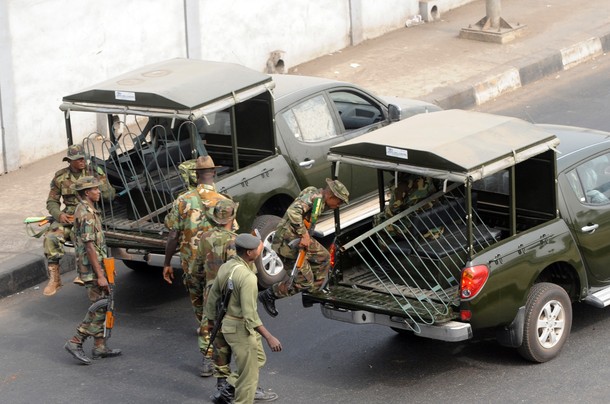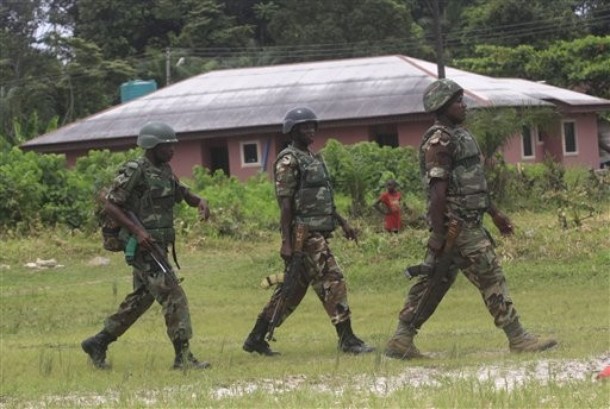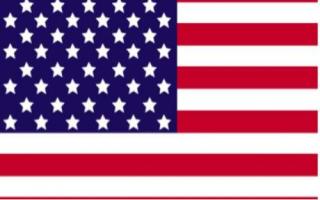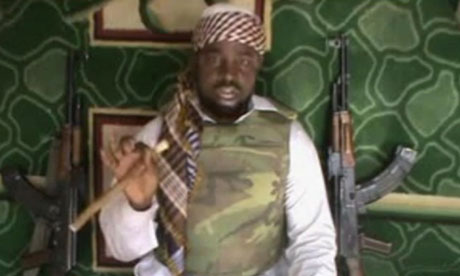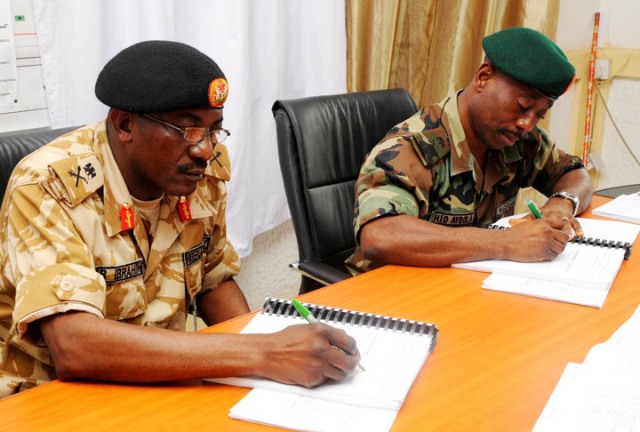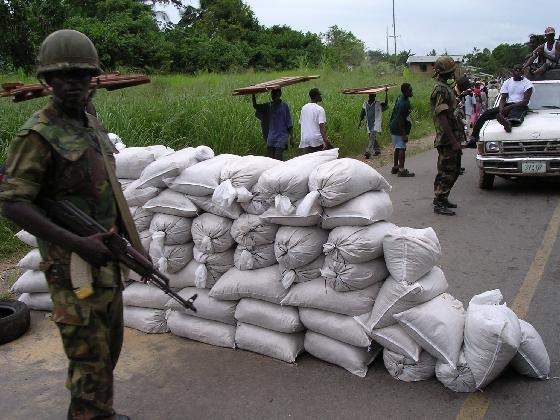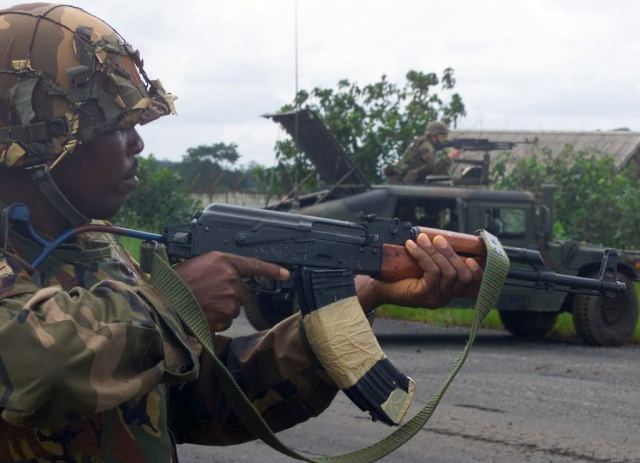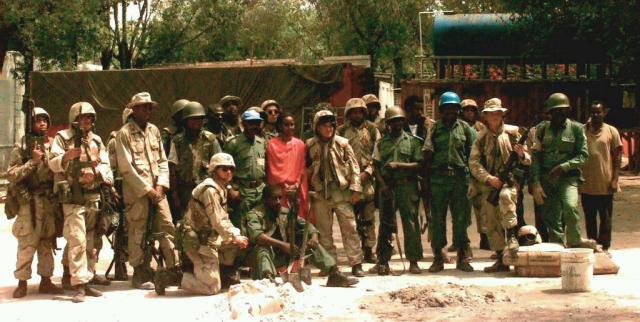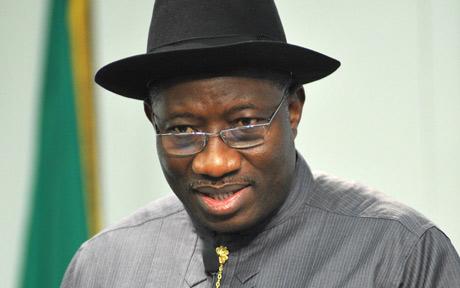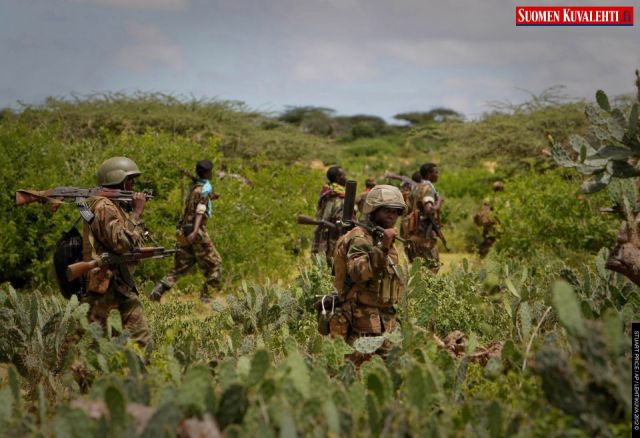May 24, 2012
Special Report
By Xan Rice
IN 2005, a young journalist named
Ahmad Salkida was living in Maiduguri, north-eastern Nigeria, when one of his mother’s friends knocked on the door. Her son had dropped out of university to study under a local imam. She begged Mr. Salkida to persuade him to return
home. The student refused to change his
mind and instead introduced Mr.Salkida to the imam, Mohammed Yusuf, a “brilliant orator” heavily influenced by the conservative teachings of a 13th century cleric.
Soon Mr Salkida began praying at Yusuf’s mosque – and reporting on the rise of an increasingly radical, if obscure, sect. Today Boko Haram, or “western
education is forbidden”, is notorious
throughout Nigeria.
The police execution of Yusuf in 2009 sparked an insurgency in the country’s north that has become as violent as any in the world. About 500 people, mostly
Muslims, have been killed this year in
Boko Haram raids, suicide attacks and
commando-style assaults targeting
police, students, the media,churchgoers and ordinary civilians.
Indeed on Tuesday, news agencies
reported that at least seven people
were killed in separate overnight
shootings in the north-eastern states,
which they said were linked to the
sect.
Choice of targets
Yet with the Islamist group holding no
territory and providing no services to
local populations to win support –unlike the Taliban in Afghanistan and al-Shabab in Somalia – it remains largely faceless and mysterious to many Nigerians. But not to Mr. Salkida.
The 37-year-old journalist is one of the
few people outside the sect able to talk authoritatively on the Boko Haram
ideology, its leader Abubakar Shekau,its choice of targets and what Mr. Salkida describes as the group’s growing links with al-Qaeda. Arrested with Yusuf in 2009, Mr.Salkida narrowly survived being killed by police, and has continued to report on Boko Haram, as his old contacts,now underground, sent him video clips of attacks and personal details of suicide bombers, and claims of
responsibility.
The closeness of his relations became clear in March, when, in an effort to initiate dialogue between the government and Boko Haram, the head of the Supreme Council for Sharia in Nigeria asked Mr.Salkida to act as a go-between with the insurgent leaders. Mr. Salkida secured Boko Haram’s commitment to talks but they subsequently fell through due to a dispute between the government and the Supreme Council.
Though his closeness to the insurgent
leaders has led to harassment and
questions about his partiality, causing
him to take a break from writing, few
question his expertise or knowledge.
Shehu Sani, a civil society activist in northern Nigeria, says: “He’s the most
authoritative voice on Boko Haram today.” Mannir Dan Ali, editor of the
Daily Trust, Mr Salkida’s former employer, adds: “He is the one journalist with access, who understands their position.”
In an interview in Abuja, Mr. Salkida said that Mr Yusuf, the movement’s founder, has based his teachings on the works of Ibn Taymiyya, after whom he named his mosque in Maiduguri, and who has influenced other modern radical Islamist
movements. Ibn Taymiyya believed in
the strict adherence to the Koran and
principles of the Prophet Mohammed,
and was devoted to the concept of
holy war. “Boko Haram was founded on ideology, but poor governance was the catalyst for it to spread.”
Yusuf, who named his sect “People
Committed to the Propagation of the
Prophet’s Teachings and Jihad”,reasoned that elements in the modern
education system conflicted with this
interpretation of Islam – hence his movement’s nickname. “On education,
he did not want mixed schools, or the
teaching of evolution. He wanted
children to have more time to study
their religion,” says Mr. Salkida. “But it
was not just education. Democracy was alien to him, and he said he could not support a government whose constitution was not based on the
Koran.”
In northern Nigeria, sharia law was
already in place before Boko Haram
launched in 2002. But it was applied
mildly and failed to check the rampant
corruption, inequality and injustice.
Poverty levels were high, and growing, and for most young people there were
few job prospects. “Boko Haram was
founded on ideology, but poor governance was the catalyst for it to
spread. If there had been proper
governance and a functioning state, Yusuf would have found it very difficult to succeed,” Mr Salkida says.
Before Yusuf’s execution, Boko Haram
had a microfinance system, operated a
farm and its own ruling council and
emirs, Mr. Salkida says. His following
stretched far beyond Maiduguri and
Borno State, across northern Nigeria, as well as into neighbouring Niger,Cameroon and Chad. Mr. Salkida
witnessed the fervency of Yusuf’s
followers when violence first erupted
in July 2009.
On capturing a policeman – a fellow Muslim – they “slaughtered him like a goat.” At the same time, hundreds of Boko Haram members were thrown into police cells – as was Mr. Salkida.
When Yusuf was brought in, Mr. Salkida heard police singing “no mercy, no mercy”. Yusuf was executed by an impromptu firing squad behind Mr. Salkida’s cell. “I don’t think that the police were acting on orders, but
emotions. Boko Haram was killing
their colleagues.”
Attacks in past year
•June 17 2011. Suicide bomber strikes
police headquarters, leaving six dead.
•August 26. At least 18 killed in car
bomb attack on UN headquarters in
Abuja
•December 25. Bombs set off at three
churches, killing at least 27 people
•January 20 2012. Nearly 200 people
killed in Kano bombings
•April 26. Suicide bombings on two
offices of This Day newspaper, in
Abuja and Kaduna, killing four people
Yusuf was also growing increasingly
militant.
In an interview with Mr.Salkida days before his death, he said: “Democracy and the current system of education must be changed otherwise this war that is yet to start would continue for long.” Mr Salkida returned to Maiduguri as a freelancer in 2010.Yusuf’s mosques and many homes had been destroyed, causing huge resentment.
Some sect members who survived fled to neighbouring countries selling their stories of injustice, Mr. Salkida says. Having been dormant for more than a
year, Boko Haram re-emerged under
the leadership of Abubakar Shekau,
Yusuf’s deputy. Mr. Salkida knew him
before 2009 and estimates that he is
34 years old.
“Shekau was always studying and writing, and was more devoted and modest than anyone else.He would only wear cheap clothes and did not accept even to drive a car,preferring a motorbike. Even when Boko Haram was peaceful, he was somehow more feared than Yusuf.”
Initially, Boko Haram launched small
attacks on security forces. In June last
year, the first suicide bomber struck,
driving his car full of explosives into
the police headquarters in Abuja. Two
months later, a second bomber blew up a UN building in Abuja. This was an
attempt to tighten existing links with
al-Qaeda in the Maghreb by illustrating
Boko Haram’s capacity to strike “western” institutions, Mr. Salkida
says. “In the past few years the relationship with al-Qaeda has been
about ‘capacity building’. But the links
are growing.
” The recent attacks on Christian churches were designed to provoke
retaliation against Muslims, which
could drive more people into Boko
Haram’s arms, Mr. Salkida says. But he
rejects the notion that the insurgency is a reaction to having a Christian president, Goodluck Jonathan, or that
some northern politicians are involved.
“If there was a Muslim president tomorrow, this would not end. The war
is not about individuals, it’s about institutions. Boko Haram sees the
northern governors and emirs as part
of the institutions.”
Mr. Salkida dismisses reports that the group has different factions. Its 30-
member ruling council is largely
unchanged since 2010, he says, apart
from two members arrested by police.
“It’s clear they (Boko Haram) are winning the war,” he says. “But I believe Boko Haram wants to end this,just not in a climate of uncertainty and insincerity. Compromises are possible.”
•Courtesy: The Financial Times Limited 2012.

